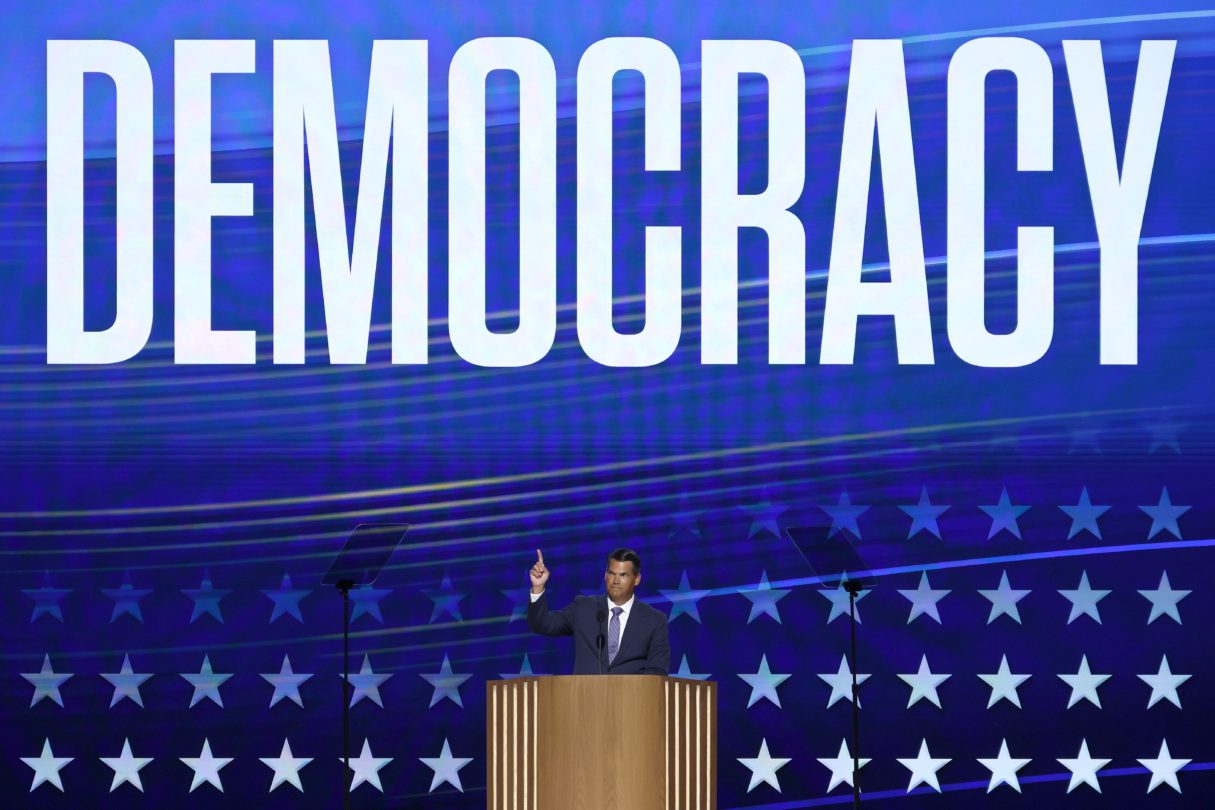Conventional Wisdom
Plus: News from Arizona and Georgia. 🗳️

At this week’s Democratic National Convention, delegates and TV viewers were reminded again about the stakes for democracy in this fall’s election. That message came loud and clear from leaders and voters from both major parties, and all across the country.
Democrats raised the alarm, for sure. Vice President Kamala Harris, accepting the party’s presidential nomination, promised to “hold sacred” the principles of free and fair elections, the rule of law, and the peaceful transfer of power.
But they were joined by Republicans, too. Geoff Duncan, the former lieutenant governor of Georgia, told the convention that Donald Trump “was willing to lie, cheat, and steal to try to overturn the 2020 election.” Olivia Troye, who worked in Trump’s administration as a counterterrorism advisor, warned that the former president is already “laying the groundwork” to undermine the election this time around. And former Rep. Adam Kinzinger, who served on the House January 6 Select Committee, said democracy must come before party allegiance, and “we must all stand together united to strengthen it.”
Now the conventions are over, the national tickets are set and the focus turns to the ultimate expression of democracy—a free and fair election. In some states, early voting begins in less than a month.
State and local election officials have been working hard to get ready. They’ve run successful primary elections. They’ve planned with law enforcement to keep voters safe. In the coming weeks, they’ll put voting equipment through strict accuracy tests and security protections.
For the public servants who make our democracy possible, election season never really ends. For the voters, it’s almost here.
This Week in Democracy
- Kamala Harris and Tim Walz accepted the Democratic nominations for president and vice president at the Democratic National Convention. In her acceptance speech, Harris pledged to “hold sacred America’s fundamental principles, from the rule of law, to free and fair elections, to the peaceful transfer of power.”
- Robert F. Kennedy Jr. suspended his presidential campaign and endorsed Donald Trump, first via a legal filing in Pennsylvania and then at a press conference. As the most prominent third-party candidate in the presidential race, Kennedy’s exit has the potential to alter a tight race.
- Kellye SoRelle, the former top lawyer for the far-right Oath Keepers, pleaded guilty to two charges stemming from the Jan. 6 attack on the Capitol. The Justice Department this week also said that it will continue to prosecute some obstruction charges from Jan. 6, following a recent decision by the U.S. Supreme Court that limited the scope of the charges.
State of the States
The U.S. Supreme Court partially granted a request to reinstate rules requiring voters to submit proof of U.S. citizenship when registering to vote. The request came from members of the Arizona and national Republican parties, despite noncitizen voting being both illegal and extremely rare. The Supreme Court also rejected other requests from the parties to implement additional restrictions.
“My concern is that changes to the process should not occur this close to an election, it creates confusion for voters,” Arizona Secretary of State Adrian Fontes said. “We respect the Court’s decision and will implement these changes while continuing to protect voter access and make a voting simple process.”
In Georgia, election officials from across the state urged the State Election Board to stop changing election rules with only 74 days until Election Day. The board on Monday approved a new rule creating additional steps before election results can be certified. The change comes after the board recently approved another rule that could delay certification.
“Activists seeking to impose last-minute changes in election procedures outside of the legislative process undermine voter confidence and burden election workers,” Georgia Secretary of State Brad Raffensperger said.